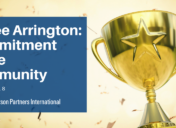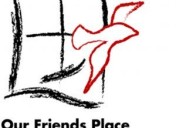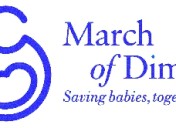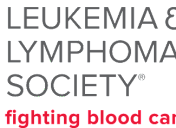Pearson Partners in the Community – Carter BloodCare
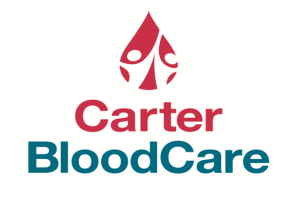
Pearson Partners International Advocate: Judy Stubbs
Pearson Partners believes in giving back to the community, and we encourage our team members to be involved in charitable organizations. Judy Stubbs, our vice president, is a longtime member of the board of directors of Carter BloodCare and is passionate about its mission. Carter BloodCare, a 501(c)(3) organization, is the largest blood bank in Texas, supplying 90 percent of the blood products used in the 58-county area around North, Central and East Texas. With a staff of close to 1,200 people, the organization collects close to 400,000 blood donations every year and is recognized nationally as a center of excellence.
We spoke with Judy Stubbs and Carter BloodCare’s president and CEO, Dr. Merlyn Sayers, about the organization’s vital role in the community.
What is the overall mission of Carter BloodCare?
We save lives by making transfusion possible. Despite all of our advances in medicine, there is no substitute for blood. The military has spent millions of dollars researching a substitute, without success.
Dr. Sayers, why did you choose a career in blood supply?
At one point in my medical career, I was in the emergency room. There was one incident in particular that is indelible in my memory. I was watching someone very close to death, who was suddenly resuscitated by a blood transfusion. This person was all but passed on, and was very suddenly given another chance at life because of a blood transfusion. Seeing that up close was life-changing. There is very little that is as dramatic, instant and restorative as a blood transfusion.
Judy, why are you so passionate about the organization?
I have been on the board for about 15 years. I’ve chaired the Human Resources Committee for years, and served on the search committee in 1996 that recruited Merlyn Sayers from the Seattle blood program. It’s really about being part of something that is bigger than yourself. As board members, we roll up our sleeves and help senior staff make critical decisions about effectively managing the operations and planning for the future. It’s a very dynamic environment, and I enjoy being a part of it. It’s a major part of the healthcare delivery system that goes largely unnoticed, yet its mission is so critical to saving lives.
How much blood is needed on a typical day?
Most people are surprised by how huge the operation is. Over 600 people every single day in the 58 counties we serve need a blood transfusion, and most of them need more than one unit (about a pint) of blood. Most adults require 2 units minimum, and an organ transplant could require 20-30. We rely every day on about 1,500 community volunteer blood donors to meet the needs of all those patients. Our employees work in recruitment, collection, testing, manufacturing, distribution and follow up. We serve more than 250 hospitals in the 58-county area, with 27 neighborhood blood donation locations.
Many people don’t understand the extent to which so many advances in medicine and surgery depend on the availability of blood. Cancer treatment, organ transplants, lifesaving trauma surgeries—none of this would be possible without blood. These treatments depend on a strong, safe, consistent and robust blood supply system.
What have been the overall results of Carter BloodCare, and can you give an example of a project you’ve done or the ways you have impacted the community?
We are the largest community blood program in Texas. We serve a population of 8 million people. We are the fourth largest in the nation, even larger than some of the national programs in Europe. We have contributed to the fact that Dallas, Fort Worth and the surrounding communities are recognized as national and international models for excellence in healthcare. But we don’t rest on our laurels—we have to be consistently working on that, especially given the pace of advances in medicine. We have to stay level and even slightly ahead of those advances. We have a staff of six physicians, some on the faculty of UT Southwestern. We keep a very close watch on what’s going on in the medical world.
Because of the extensive testing we perform on every unit of blood that is donated, we are often at the forefront of recognizing brewing health problems in the community. In fact, last year, our tests revealed an outbreak of West Nile Virus, even though donors didn’t have any symptoms. Our staff alerted the health authorities of the rate that West Nile was spreading, even before they were aware of the extent of the problem. Fortunately, it represented much less than 1% of donations, so the effect on the blood supply was negligible.
What are the factors that limit Carter BloodCare in terms of its ability to do more for our community?
One of the limitations is our ability to communicate to the community how essential a strong and safe blood supply is. If we were a for-profit organization, we’d be using as many media outlets as we could to communicate this message. As a not-for-profit, it’s hard to get that word out. Education really is crucial. Every now and then a disaster happens, and people have a heightened desire to help. Many people don’t realize that lives are saved in those disasters by the blood supply that’s already on the hospital shelf, donated in the days before. There is a constant, daily need for blood. Every day, there are thousands of people who are experiencing their own crisis, their own personal tragedy, who need that blood as much as a disaster victim does.
Is it true that Type O blood is universal?
Type O can be given to anybody in a crisis, if the patient is in desperate need of a lifesaving transfusion and there’s no time to do the usual tests for compatibility. So under those desperate circumstances, transfusion with Type O can begin. But ideally, you would test to make sure there are no reactions prior to transfusion. The best thing is your exact type, so donations of all blood types are needed.
What is the best way to get involved with Carter BloodCare?
If you can donate blood, consider it. You are saving a life. If you cannot donate blood for any reason, become an advocate. Tell your friends and colleagues how important it is. Particularly for those 600 people each day in our community whose lives are saved by transfusion. But giving blood is just the beginning of what you can do. You can sponsor a blood drive at your business or school. The majority of our blood supply comes from blood drives organized in the community. We also have individuals who donate to our foundation, which supports activities like outreach programs and the health screening we do for every donor for common risks like heart disease and blood disease.
What is involved in sponsoring a blood drive?
Just call our office or go to our website. You can have a Bloodmobile come to your workplace, or we can set up in your office or building lobby. There is no cost to you. Some setups are huge—at the Plano High Schools, for example, about 700 students donate in their gym. Our support from the high schools is huge—nearly 20% of the community blood supply comes from high school kids at their schools. They are strong supporters. It’s simple, personal and lifesaving.
Donating blood is a very rewarding and personal gift, isn’t it?
It is. It’s a really wonderful feeling to think, “There’s somebody in the community whom my blood or platelets is affecting. Although I’ve never known that person, I’d like to think that person got another chance because of me.”

